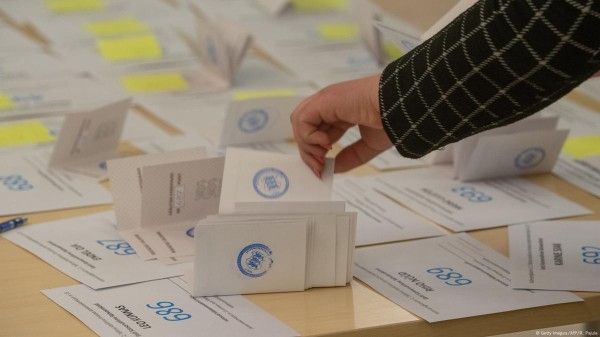
In the vote on Wednesday, 93 lawmakers in the 101-seat Riigikogu backed a constitutional amendment to impose the restrictions, a result that was met with applause from MPs.
Estonian Prime Minister Kristen Michal hailed the outcome as "a victory for all", adding on X: "The decisions in our local life won't be made by the citizens of the aggressor states, but we'll decide by ourselves."
Nearly 80,000 Russian citizens hold a residence permit in Estonia, most of them individuals and families that moved here during Soviet Union occupation of Estonia after 1945. Estonia does not recognize dual-citizenship for naturalized citizens.
There are also nearly 60,000 people left stateless after the fall of the Soviet Union.
The restrictions, if signed into law by Estonia's president, would ban non-EU citizens from voting and allow the stateless residents to go to polls one last time in local elections in October.
But the mayor of Narva, a predominantly Russian-speaking town on the border with Russia, lamented the lawmakers' decision.
"The country is divided: you, Estonians, and us, Russians, whom the Estonians don't trust," Katri Raik told the Delfi news website.
"Citizenship or ethnicity doesn't make anyone a security threat," she argued.
Permanent residents of Estonia currently have a constitutional right to vote in local elections, but not in general elections.
The Baltic states have been steadfast supporters of Ukraine, but both Estonia and Latvia have sizable Russian-speaking minorities that are sometimes at odds with the national governments.
There have been concerns that Moscow could seek to exploit these differences to destabilize the countries, which are both EU and NATO members.
Advertisement / Reklaam
Advertisement / Reklaam
Estonia plans to raise defense spending next year to at least five percent of GDP."Russia has not changed its goals and imperialistic ambitions. This is a real threat to both Europe and NATO," prime minister Michal said last week.
Residents in the border-town Narva not happy
"This is a very strange decision," Alexander, an Estonian Russian-speaking student told reporters.
"My parents, for example, have Russian passports. They have been living here for many years, they also work here, they pay taxes. Why can't they decide?" he said.
When Estonia gained re-independence from the Soviet Union in 1991, around a third of the people living on its territory were from Russian-speaking minorities whose families had immigrated from other Soviet republics.
They did not qualify for citizenship because of a lack of blood ties to Estonia. Citizenship also requires applicants to pass an Estonian language test.

